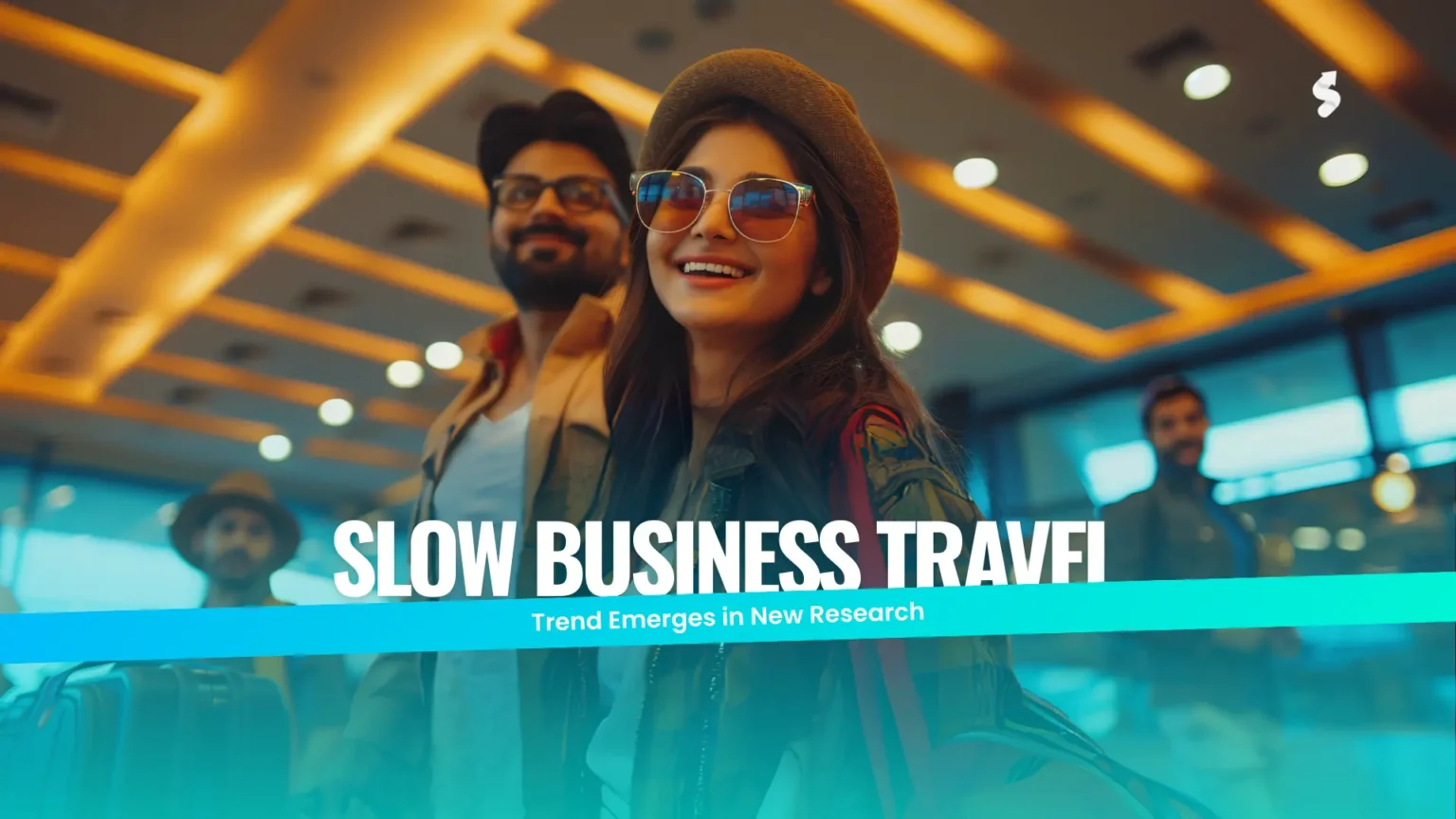Introduction: The Shift in How We Travel for Work
Business travel has always been about speed. Catching the earliest flight, rushing to the meeting, and flying back the same night was once seen as a badge of professionalism. But in 2025, things are starting to look very different especially as Gen Z enters the workforce in full force. The youngest working generation is bringing fresh values, and at the center of it is a trend called “slow business travel.”
Unlike the traditional hustle of corporate travel, slow business travel emphasizes sustainability, purpose, and well-being. It’s not about doing less it’s about doing it differently. New research shows that Gen Z professionals don’t just want to attend meetings; they want to travel in ways that are greener, more meaningful, and better for work-life balance.
This article dives into what slow business travel means, why Gen Z is driving this change, and how companies can adapt to this growing trend.
What Is “Slow Business Travel”

Slow business travel doesn’t mean skipping work trips it means rethinking how they’re done. Inspired by the broader “slow travel” movement, it focuses on:
- Choosing eco-friendly transport (like trains instead of flights where possible).
- Extending trips slightly to reduce the stress of rushing.
- Combining business with meaningful experiences, such as cultural exploration or wellness.
- Balancing productivity with well-being, rather than treating business travel as an exhausting obligation.
In short, it’s about making business travel more sustainable, human, and purposeful.
Why Gen Z Is Driving This Trend
Gen Z (born between 1997 and 2012) is now the fastest-growing segment of the global workforce, and their approach to work and life is redefining industries. When it comes to business travel, three key values stand out:
- Sustainability Matters
- Gen Z grew up with climate change as a major concern. They want employers to reduce carbon footprints and offer greener choices for travel.
- Research shows nearly 60% of Gen Z employees are open to slow travel if it helps reduce environmental impact, even if it takes more time.
- Work-Life Balance Over Hustle Culture
- Unlike older generations, Gen Z does not glorify the “red-eye flight + back-to-back meetings” lifestyle.
- They prefer business trips that allow for rest, flexibility, and healthier routines.
- Experiences Over Transactions
- For Gen Z, travel is not just about checking in at a hotel. They want immersive experiences, such as exploring local food, culture, and lifestyle even during work trips.
- This “bleisure” (business + leisure) mindset makes slow travel more attractive.
Key Findings From New Research
Recent studies shed light on just how strongly Gen Z feels about this shift:
- As per Trainline business Approx 60% of Gen Z professionals said they would choose slower, more eco-friendly modes of travel (like rail) for business trips if possible.
- That number rises to 75% if employers actively support green travel choices.
- However, only 44% feel their workplace currently encourages low-carbon travel.
- Despite sustainability concerns, 94% of Gen Z still believe business travel is vital for career growth, networking, and maintaining client relationships.
In short, Gen Z doesn’t want to give up travel, they just want to do it better.
Benefits of Slow Business Travel

For Employees
- Reduced Stress: No more rushing between flights and meetings.
- Better Health: More rest, less burnout, and time for wellness.
- Richer Experiences: Combining work with cultural exploration.
For Companies
- Talent Retention: Gen Z employees are more likely to stay with companies that align with their values.
- Sustainability Goals: Slow travel helps companies reduce their carbon footprint.
- Stronger Client Relationships: Longer, more meaningful trips often lead to better connections.
Challenges Companies Need to Address
While the benefits are clear, there are also real challenges in adopting slow business travel:
- Time vs. Cost Balance
- Slower travel (e.g., trains) often takes more time, which can conflict with tight schedules.
- Companies need to balance efficiency with sustainability.
- Budget Constraints
- While sometimes cheaper, greener options may involve extra days of travel or accommodation costs.
- Businesses need clear policies to make this viable.
- Policy Gaps
- Most workplaces don’t yet have formal policies encouraging sustainable travel.
- Without structured support, employees may default to the fastest (but not the greenest) option.
Also Read: 5 Bengali Sarees you can try for this festive season
How Employers Can Adapt
For companies, adapting to Gen Z’s travel expectations isn’t just a perk it’s becoming a necessity. Here’s how organizations can keep up:
- Create Green Travel Policies
- Encourage rail travel for regional trips.
- Provide incentives or reimbursements for sustainable travel choices.
- Offer Flexibility
- Allow employees to extend trips if it means reducing stress or avoiding overnight flights.
- Blend remote work + travel options to make schedules smoother.
- Measure and Communicate Impact
- Track the company’s carbon footprint from travel.
- Share reports internally to show progress.
- Redesign Travel Programs
- Work with travel partners (hotels, airlines, rail networks) to build eco-friendly packages.
- Position these as a competitive advantage for attracting young talent.
The Future of Business Travel
The rise of slow business travel is not just a Gen Z fad, it’s part of a broader global shift in how people approach work and mobility. Here’s what we can expect in the coming years:
- Hybrid Travel Models: More blending of business and leisure trips.
- Increased Use of Rail: Especially in Europe and Asia, where high-speed rail networks are expanding.
- Sustainable Hospitality: Hotels and airlines offering eco-certifications and green perks.
- Technology Integration: Digital tools that make planning and tracking eco-friendly travel easier.
As Gen Z grows into leadership positions, the demand for purpose-driven, sustainable, and humane travel policies will only increase. Companies that ignore this may risk losing both talent and credibility.
Conclusion: Why This Trend Matters
Gen Z isn’t rejecting business travel, they’re reinventing it. For them, the future of work trips is slower, greener, and more balanced. By embracing this trend, companies can:
- Support sustainability goals.
- Build stronger connections with employees and clients.
- Create a healthier, more purposeful culture of work.
The real question is no longer “Should we send employees on business trips?” but rather:
“How can we make business travel more sustainable, meaningful, and future-ready?”
And with Gen Z leading the way, the answer is clear: slow business travel is here to stay.
Also Read: Places to visit near Mumbai this weekend








